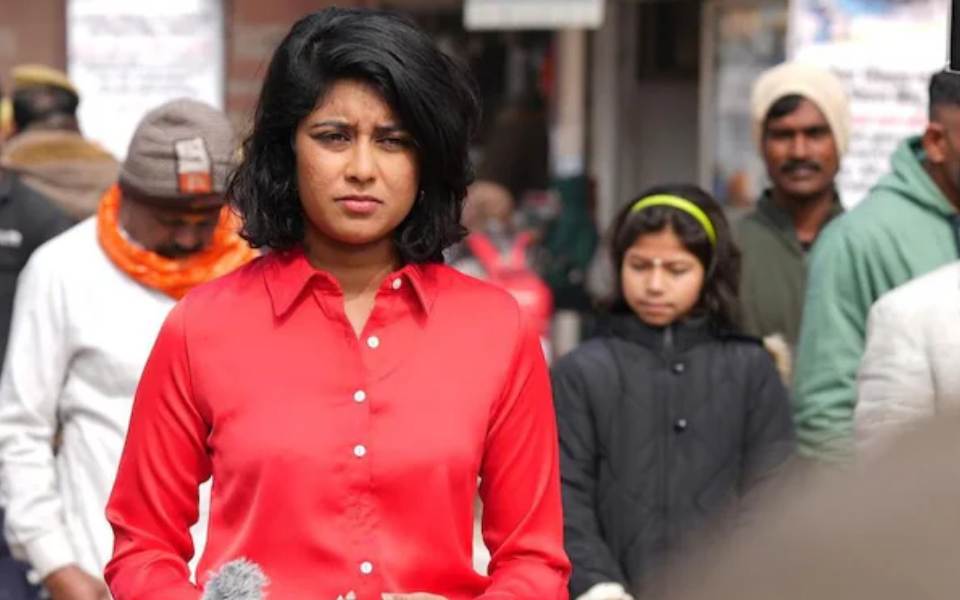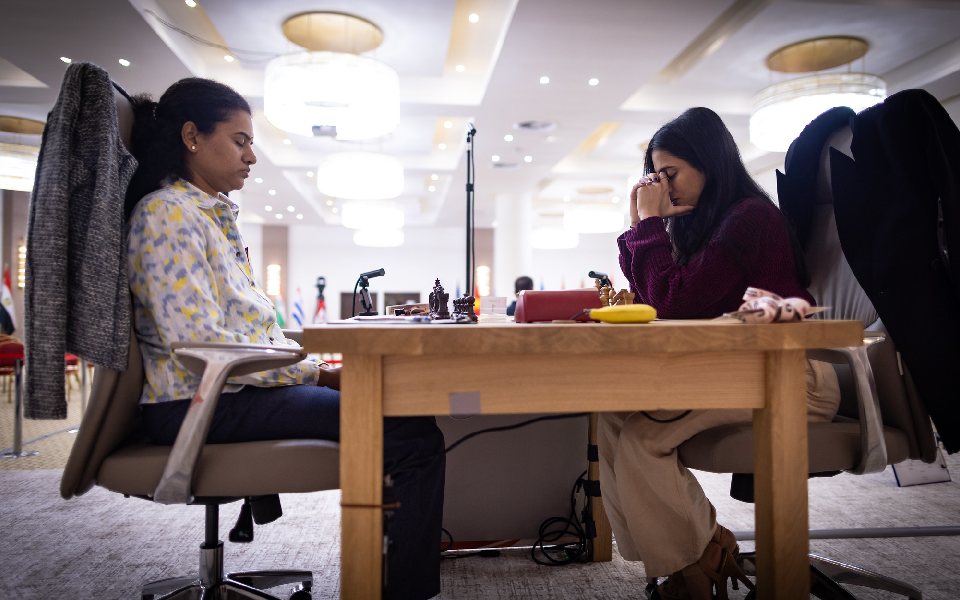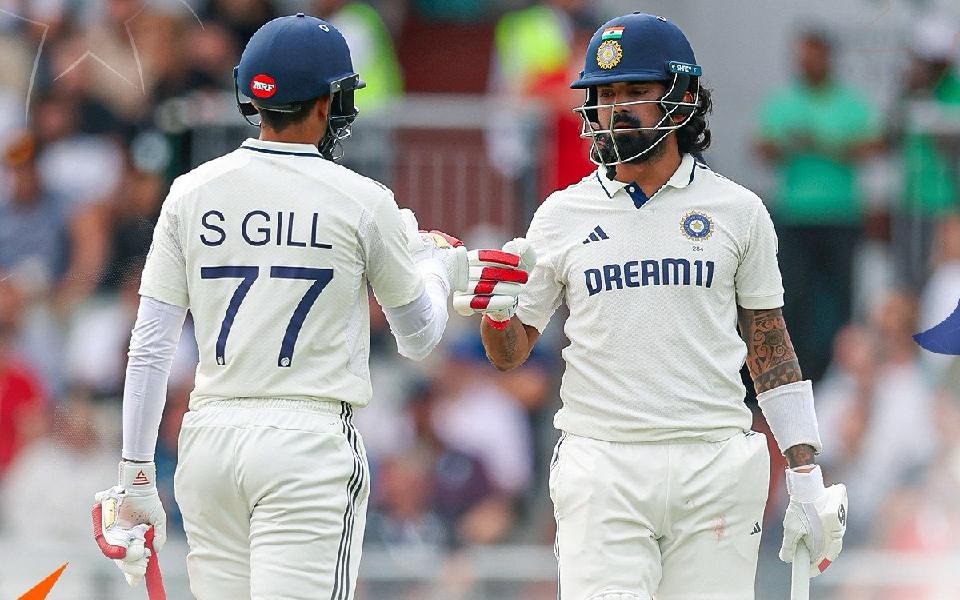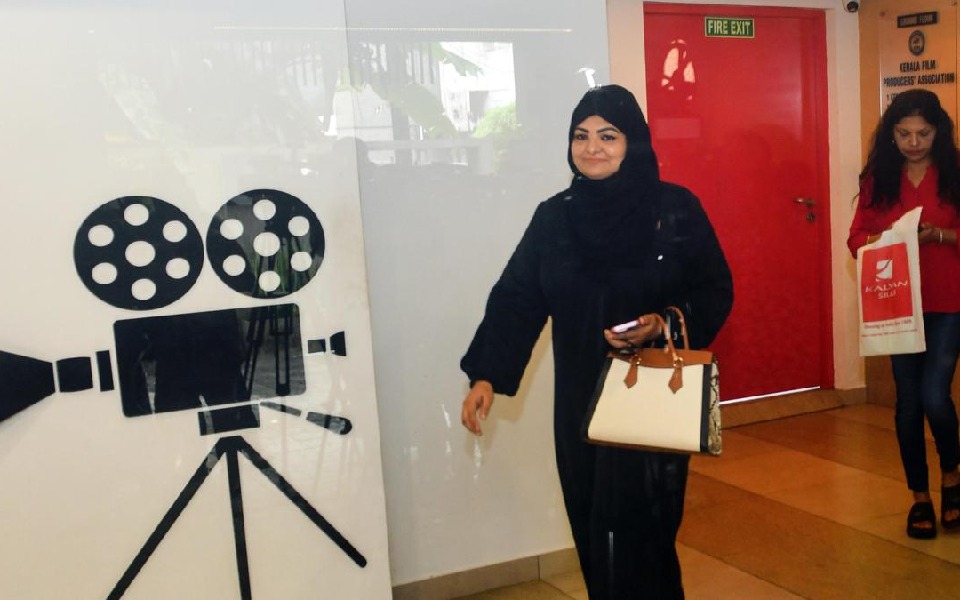New Delhi, Apr 23: Days after she left India, Australian journalist Avani Dias claimed on Tuesday that she was not allowed to cover elections and was compelled to leave the country even as government sources said her allegation is incorrect and misleading.
The South Asia Bureau Chief of the Australian Broadcasting Corporation (ABC) left India on April 19, and she claimed on Tuesday that she was denied an extension of her visa by the Indian government because of her reports "crossed a line".
"After Australian Government intervention, I got a mere two-month extension...less than 24 hours before my flight," she said in a post on 'X'.
"We were also told my election accreditation would not come through because of an Indian Ministry directive. We left on day one of voting in the national election in what Modi calls 'the mother of democracy'," she added.
However, government sources said Dias was found to have violated visa rules while undertaking her professional pursuits.
In spite of this, on her request, she was assured that her visa would be extended for the coverage of the general elections, the sources said, adding her previous visa was valid till April 20.
"The contention of Avani Dias, the South Asia Correspondent of Australian Broadcasting Corporation (ABC) that she was not allowed to cover elections and was compelled to leave the country is not correct, misleading and mischievous," a source said.
The sources said Dias paid the visa fee on April 18 and her visa was extended till end June the same day.
She, however, chose to leave India on April 20, they said, adding at the time of her departure she held a valid visa and her extension of visa stood approved.
Her point about not been given permission to cover elections is also factually incorrect, the sources said.
Coverage of election activities outside of booths is permitted to all Journalist Visa holders, they added.
"Authority letters are required only for access to polling booths and counting stations. This, however, cannot be processed while the visa extension is under process," the source said.
"It is pertinent to note that other ABC correspondents -- Meghna Bali and Som Patidar -- have already received their letters," the source added.
We were also told my election accreditation would not come through because of an Indian Ministry directive. We left on day one of voting in the national election in what Modi calls "the mother of democracy”.
— Avani Dias (@AvaniDias) April 22, 2024
Hear more on our podcast Looking for Modi: https://t.co/rn6wTkdI21
Let the Truth be known. If you read VB and like VB, please be a VB Supporter and Help us deliver the Truth to one and all.
Batumi (Georgia), Jul 26 (PTI): Young Indian International Master Divya Deshmukh held her nerves to hold stalwart Koneru Humpy to a draw in game 1 of the FIDE Women's World Cup final, with both players having their share of opportunities to take the lead here on Saturday.
The draw with black means Humpy, the two-time World Rapid champion, holds a slight edge going in the second and final game under the classical chess rules in the two-game mini-match, and should the deadlock continue, games of shorter duration will be played to determine the winner.
Humpy employed the Queen's gambit accepted as black and it turned out to be a pretty fascinating game right out of the opening as Divya, 19, came up with a piece sacrifice early to deny the black king the right to castle.
Humpy was the first to err and, according to computers, Divya had things under control on the 14th move. However in her bid to recover the extra material, the Nagpur girl, who has secured a place in the Candidates tournament with her sterling performance here, missed a promising continuation.
What followed the exchange of all minor pieces and the ensuing queen and rook endgame gave enough counter play to both players. The game was eventually drawn after Humpy sacrificed her rook to force perpetual checks.
"The game saw an extremely sharp battle with the game ending in a draw in 41 moves. On move 7, Divya made her aggressive intentions clear by offering another pawn,
which looked like home preparation. Humpy made a practical decision of refraining from taking the pawn and a balanced position was reached by move 10 by white," said Grandmaster Pravin Thipsay, an Arjuna awardee and the first Indian to get a chess Grandmaster norm.
"However, instead of developing the undeveloped Knight, Humpy retreated the centralised Knight on move 10, giving huge positional advantage to Divya. Divya could have gained huge positional advantage on the 12th move by moving a rook. However, she chose to play for King side attack by sacrificing a piece instead.
"Humpy, too, erred at this stage and instead of moving the King to Queen side, moved it to the King side. Divya, on move 14, could have obtained a crushing attack by threatening a mate by developing her Queen. Instead she chose to exchange a pair of Bishops first, which enabled Humpy to defend her King by returning the piece," said Thipsay.
"Players thus reached a balanced Queen and two Rooks ending. Divya continued to play ambitiously and tried to attack Humpy’s King but the latter defended accurately and the game was drawn in 41 moves by perpetual check," he added.
In the play-off for the third place, Chinese players Zhongyi Tan, the former women's world champion and top seed Lei Tingjie also decided to split points out of a Queen’s gambit declined game.
The opening raised visions of a close contest between the two but having been knocked out of title race in the previous round, none of them wanted to take any huge risk. It was still a middle game when the players shook hands.
With the top two positions sealed for the Indians, the berth to the next Candidates is also assigned, while the player finishing third will also get an entry to the premier event scheduled for 2026.
Results: Divya Deshmukh (Ind) drew with Koneru Humpy (Ind); Zhongyi Tan (Chn) drew with Tingjie Lei (Chn).





